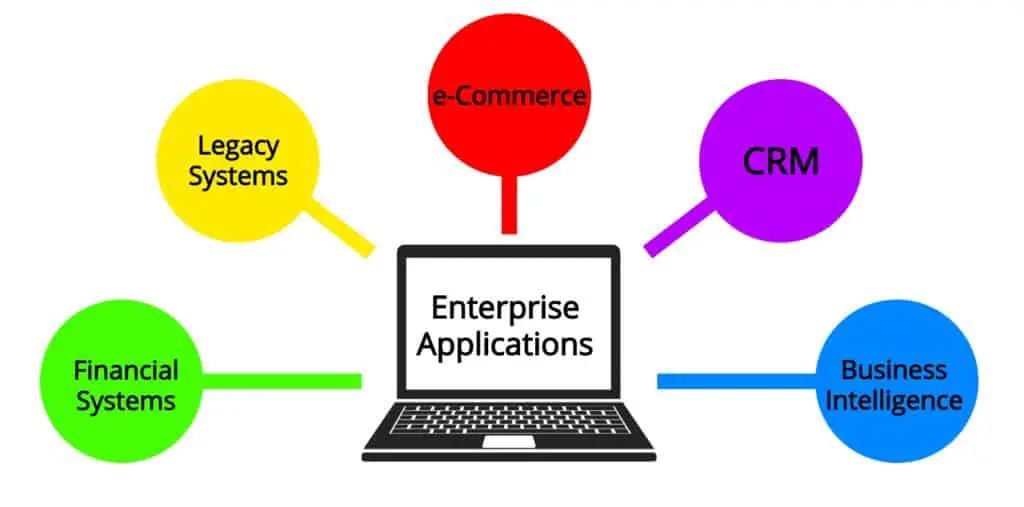Java is the most important programming language in the world today. If you disagree with that statement, answer me this. What would happen if every application running Java were to vanish? What would the world look like?
There would be no Google, Facebook, Netflix, Amazon, and a slew of others. So why is Java important? Here’s why.
Why is Java important?
When Java was first released in 1995, it was primarily important because of its platform-independent nature. At the time, Java revolutionized the programming world by being the only platform-independent programming language. Today, Java is important because it’s the most popular and widely-used language in the world.
Tilak Desai is a career counselor who, when asked of the importance of Java, had this to say.
Today, Java is driving more than $100 billion dollars cash dollars of organization yearly. If we take a look at the organization side, more than $2.2 billion dollars cash funds are being spent by the businesses in Java application server. There is no asking that Java is used considerably for developing Java organization applications reason being Protection. Java brings some of the best functions or benefits that are impossible to find in any other development ‘languages’ or systems.
Most of the largest tech companies, including over 90% of enterprise applications use Java in their back end. Also, Java is used in virtually all android applications and heavily used Internet of Things (IoT) devices. Basically, Java is as important not just because of how extensively it’s used, but because of how useful it is compared to other languages. But where can we see Java’s usefulness?
• Enterprise Applications
• Android Applications
• Data Analysis
• Internet of Things (IoT)
• Cloud Computing
Enterprise Applications

If you’re unsure of what an enterprise application is (and what it isn’t), this should help. Adrian Bridgwater, senior contributor to Forbes regarding enterprise applications states: “…an enterprise application is clearly an app that you might use at work, in an enterprise, obviously. It’s not Angry Birds, Candy Crush Saga or Pokémon Go.”
Bridgwater also clarifies that not all applications start out as enterprise applications. Rather, applications such as Facebook begin as a social platform but eventually evolve. Today, Facebook is still primarily a social media application. However, it has many commercial uses such as advertising and collecting user-data.
In a previous article, Why Is Java So Popular After 25 Years?, I state that Java is used in 95% of enterprise applications as their main language. When you really consider this, you’ll start to understand the scope of Java’s usefulness and importance. These applications are found largely in legacy systems in the business and financial sector including e-commerce and CRM software.
Okay, so in the title of this article, I mention that the introduction of Lambdas in Java 8 had little to with its importance. However, they certainly play a role. Between Lambdas in Java 8 and REPL in Java 9, these tools allow for a smoother development of enterprise applications. They also play a major role in Data Science.
Android Applications

Not all android applications are created with Java. In fact, as of late 2017, Kotlin overtook Java as the majority leader of android applications, according to ADT Mag. Kotlin runs alongside Java, making them complementary. There are roughly 2.5 million android applications in the Google Play store since the third quarter in 2019, as stated by statista.
Now, consider that android dominates the global smartphone industry with 86.2% market share according to 9To5Mac. This was written in late 2016 so this number may have shifted since then.
Even so, considering the dominant market share that Android has on smartphones and the high percentage of android applications written in Java, you can see why it’s an important language. However you spin it, Java applications are used by billions of users daily and a large percentage of those users come from android applications.
Data Analysis

There was major world news in 2017 that may have slipped by you. According to TruePublica, data is now the world’s largest commodity, overtaking oil. When you consider how valuable big data really is, you can begin to understand how important the programming languages are that power this industry. Let’s take a look at that.
Data science had primarily used the Python and R programming languages for data science. However, Java is also heavily used and for good reason. Apache Hadoop is built with Java on a Linux OS and provides an open-source platform ideal for data science.
According to DeZyre, an online training resource for Hadoop and other technologies, “Java is used for storing, analyzing and processing large data sets.” This, of course, makes it a top contender for data analysis.
DeZyre, in another article, refers to the large number of companies that hire for Hadoop developers and thus, use it heavily. Such companies that make the list are social media giants like Facebook, Twitter, and LinkedIn.
However, the list doesn’t end there. eCommerce businesses such as eBay, Alibaba, and Rakuten, as well as streaming services such as Hulu, use Hadoop. The list they assembled includes over 100 companies, yet the list of companies that hire and utilize Hadoop developers surely doesn’t end there.
Internet of Things (IoT)

The number of devices with the ability to connect to the internet has skyrocketed since the advent of IoT. Internet of Things, or IoT, simply refers to the growing number of devices that connect to the internet, as stated by iot for all. These devices send and receive data through sensors and user input and then perform actions based on said data.
But which devices are IoT devices? It’s not just your PC, laptop, and smartphone anymore. Devices you might not even imagine are now being connected to the internet. This includes washers and dryers, refrigerators, thermostats, light switches, doorbells, and door locks, bringing Disney’s classic thriller, Smart House, closer to reality.
But where exactly does Java come into play in all this? This is exactly why Java is so important. Many, including Timothy Beneke at Oracle, believe that Java is the best choice for IoT devices. But why? Here are a few reasons that make it the perfect match for IoT.
• Java is platform-independent
• Java integrates with IT systems
• Java has a massive ecosystem
• Java has a quick time to market
• Java has end to end security
• Java is capable of real-time response
Cloud Computing

Cloud computing and IoT actually go hand in hand. As stated by Business Insider, “The IoT generates massive amounts of data, and cloud computing provides a pathway for that data to travel to its destination.” Essentially, what this means is, all the data generated by IoT devices can conveniently be transferred to and stored in the Cloud. That said, cloud computing offers more than just convenient IoT solutions.
Let’s first look at exactly what cloud computing is. According to the Microsoft Azure blog, “Simply put, cloud computing is the delivery of computing services—including servers, storage, databases, networking, software, analytics, and intelligence—over the Internet (“the cloud”) to offer faster innovation, flexible resources, and economies of scale.“
Java is important because it’s the primary language used in such cloud-based services. Garry Taylor, who has been programming since 8-bit systems, states “…Java is more than capable of being used to make network services, in fact, it’s probably the de facto standard choice in the industry.” And he’s exactly right. Since this post, Java has indeed become the #1 choice for cloud developers, according to Go Java.
Related Articles

